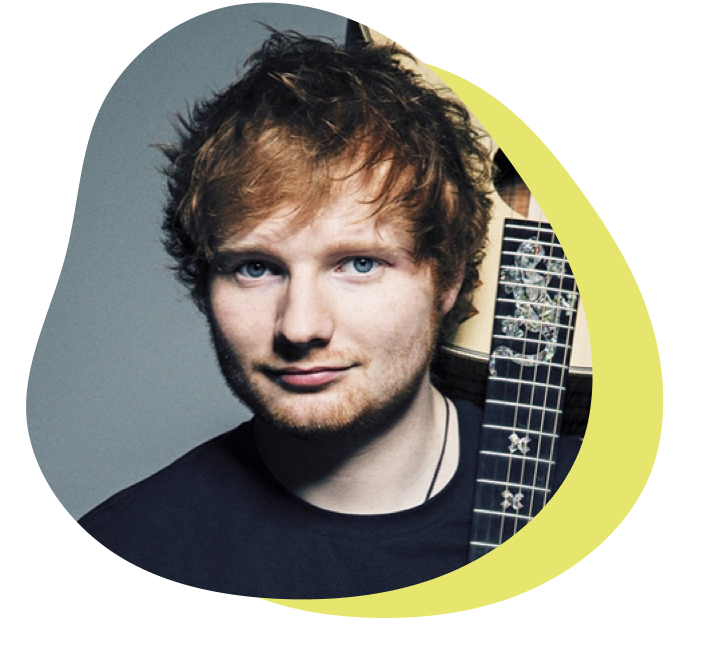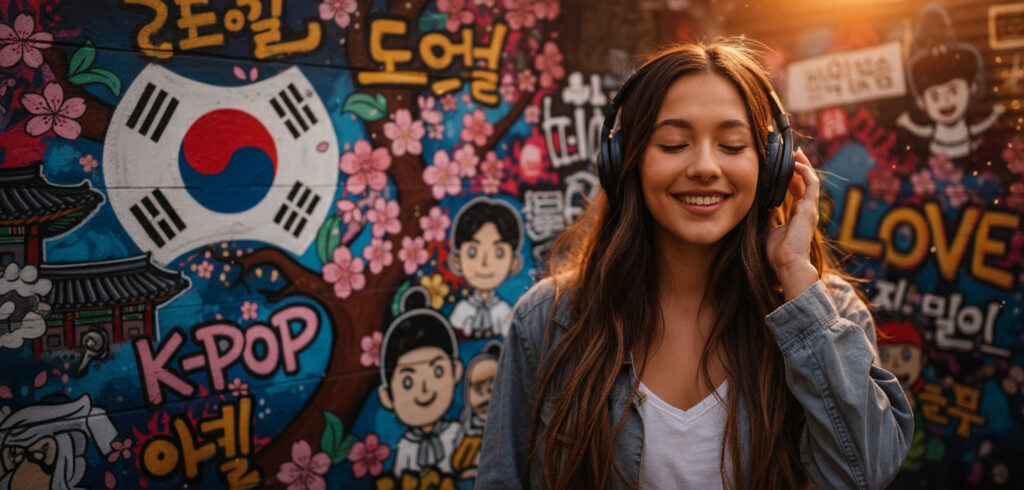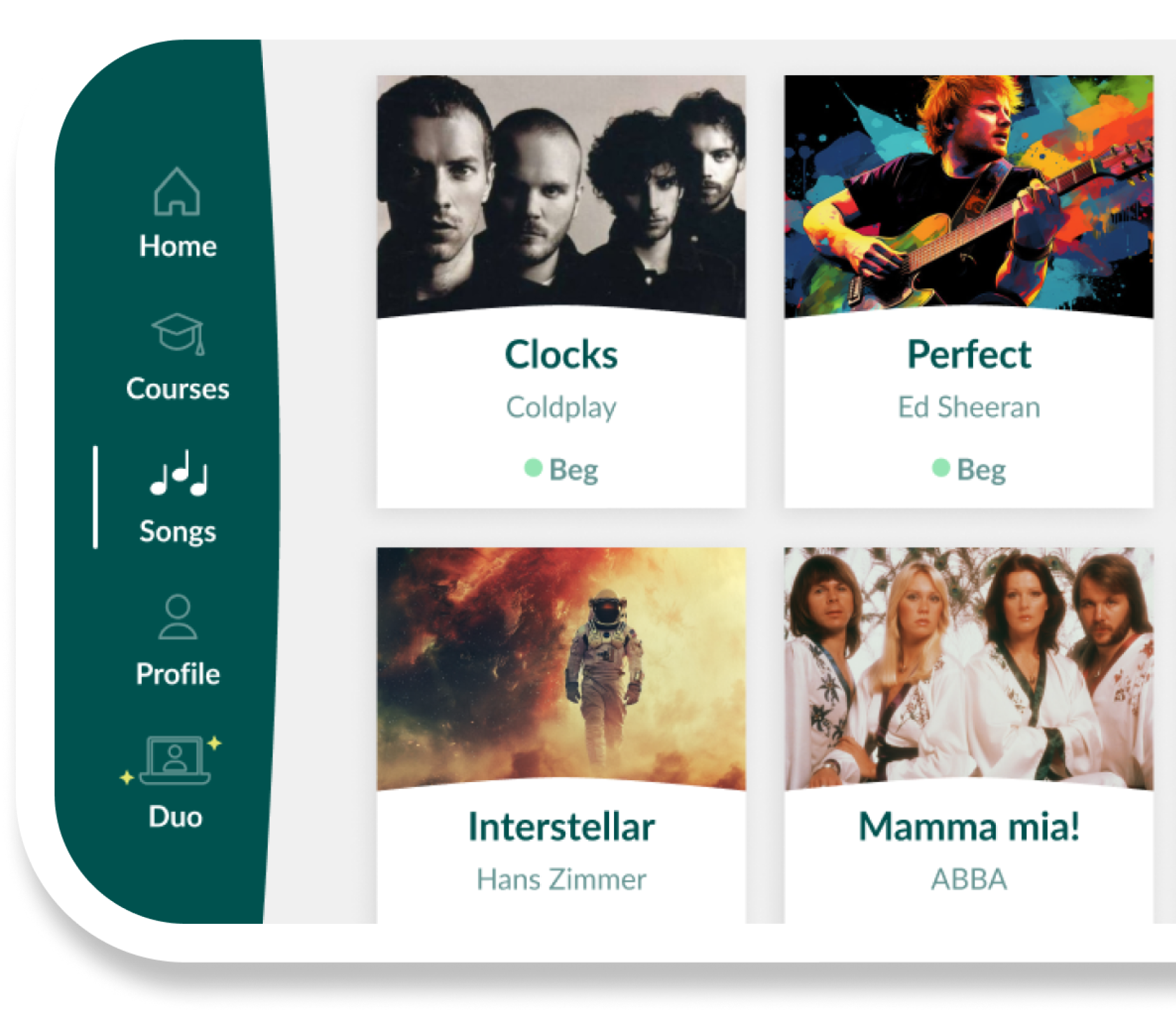While K-pop dominates charts from Los Angeles to Lagos, Korean listeners also show remarkable loyalty to their domestic artists. 77% of South Korea’s Spotify Top 200 features local acts, ranking 7th globally among 73 nations for musical sovereignty.
The data reveals a striking asymmetry: Korean artists appear in the Top 5 music sources for 20 countries, capturing 36% of Taiwan’s Top 200 and 29% of Hong Kong’s. Yet American superstars barely register in Seoul. Only 16% goes to American artists: one of the lowest US penetrations in developed Asian markets. Taylor Swift accounts for less than 1% of Korea’s chart presence. Even Bruno Mars, the most successful Western artist in Korea, manages just 1.3%. Meanwhile, four BTS solo members collectively claim more Top 200 presence than all American artists combined.
To understand these patterns, the piano learning app Skoove partnered with DataPulse Research to analyze over a year of Spotify Top 200 data across 73 countries, tracking more than 800,000 data points to reveal how local music ecosystems thrive or collapse in the streaming era.
Platform context: Spotify entered Korea late and held minimal market share until its free tier launched in October 2024. Local platforms Melon and YouTube Music remain dominant. Our analysis reflects Spotify streaming patterns, which may differ from overall Korean consumption.
BTS soloists outperform entire US music industry
Following BTS's pause for solo projects and military service in 2022, the members' individual careers reveal unprecedented chart dominance. Jimin alone accounts for 9.44% of South Korea's Top 200 presence: a share that would rank him among top artists globally in any country. When combined with Jung Kook (3.77%), Jin (2.09%), and V (1.86%), these four artists claim 19.15% of their home country's chart positions.
The solo achievements validate this dominance: Jimin became the first Korean soloist to debut at No.1 on the Billboard Hot 100 with "Like Crazy," while Jung Kook's "Seven" broke multiple Spotify streaming records. In our Top 200 analysis, their combined chart presence surpasses the 16.05% held by all American artists: a rare phenomenon where members of one group dominate both collectively and individually.
Four artists vs. an entire nation's music industry
19.15%
16.05%
Western superstars hit the Korean wall
Nothing illustrates Korea's musical sovereignty better than the struggles of Western megastars. Taylor Swift, who dominates charts globally, holds less than 1% of Korean Top 200 presence, falling behind virtual group PLAVE or indie artist Car, the garden. Lady Gaga manages 0.68%, while globally dominant acts like Drake, The Weeknd, and Post Malone don't even register in the top 40.
Bruno Mars stands as the lone Western success story with 1.33% chart presence, likely boosted by his R&B appeal that resonates with Korean audiences. But even this "success" pales compared to his dominance elsewhere. The message is clear: global stardom offers no guarantee of Korean acceptance.
New wave challenges the throne
While BTS members dominate individually, fourth-generation K-pop groups are rapidly gaining ground. NewJeans leads with 6.18% of the Top 200: remarkable for a group that debuted in 2022. The group won Artist of the Year at the 2023 Melon Music Awards and set streaming records on Korea's dominant platform. Together with aespa (3.15%), LE SSERAFIM (2.06%), and other newcomers, these groups collectively command over 15% of Korean charts.
Particularly striking is the success of PLAVE — a virtual K-pop group with AI-generated members — claiming 2.29% of the Top 200. This places them ahead of many established real groups, demonstrating Korea's willingness to embrace technological innovation in entertainment.
South Korea's music landscape: Local heroes vs global stars
Top 15 Korean artists who dominated South Korea's Spotify Top 200 in 2024-2025.
No international act cracked the Top 15.
Jimin • K-pop
9.4%
Lim Young Woong • Trot
9.1%
NewJeans • K-pop
6.2%
Jung Kook • K-pop
3.8%
aespa • K-pop
3.2%
PLAVE • Virtual K-pop
2.3%
Jin • K-pop
2.1%
STRAY KIDS • K-pop
1.9%
V • K-pop
1.9%
(G)I-DLE • K-pop
1.8%
SEVENTEEN • K-pop
1.8%
DAY6 • K-rock
1.7%
IVE • K-pop
1.7%
ILLIT • K-pop
1.7%
ROSÉ • K-pop
1.4%
Generational harmony: Trot meets trap in streaming unity
Traditional trot singer Lim Young Woong claims 9.12% of the Top 200, nearly matching BTS's Jimin. According to 2024 Gallup Korea polling, Lim Young Woong topped the list among those aged 40 and older with 33.9% support, maintaining his position for the fourth consecutive year in this demographic while also ranking in the top 10 among younger listeners.
This multigenerational success distinguishes Korea from other markets where streaming typically skews young. DAY6's rock sound, BIGBANG's legacy hip-hop, and G-DRAGON's genre-bending artistry all maintain significant chart presence alongside newer acts. The data suggests Korean streaming maintains an entire ecosystem of Korean musical expression across generations and genres.
The transformation from physical sales to streaming fundamentally changes how artists build careers. Scottish musician Graeme Clark from Wet Wet Wet reflects on this shift:

"The game has completely changed. It used to be about building a following, town by town, with your sound echoing in local clubs. Now, the echo chamber is a global playlist. You're not trying to win over a city anymore; you're trying to please an algorithm. It's a fantastic way to reach the entire world, but you have to wonder what unique sounds get lost in that global translation."
Clark's observation about unique sounds getting lost takes on special meaning in Korea's context. Rather than losing their unique sound, Korean artists have made it their greatest strength: creating music so culturally specific that it becomes universally appealing precisely because of its authenticity.
The streaming sovereignty blueprint
South Korea's 77% local music dominance offers lessons in cultural sovereignty in the digital age. The success spans genres — from idol pop to traditional ballads, from virtual performers to rock bands — united by authentic Korean identity. This model challenges assumptions about streaming's globalizing effects, demonstrating how platforms can amplify local distinctiveness rather than erode it.
As the data reveals, South Korea has become a major cultural exporter while maintaining strong sovereignty over its domestic market. In an era where most countries see their charts dominated by American pop, Korea proves that local music can thrive in the age of global streaming. This dual success contrasts sharply with countries like the UK, where domestic artists struggle for chart presence in their own market, or fortress markets like Japan that resist foreign influence but lack global export success.
Methodology
The study analyzed data from the top 200 songs streamed weekly on Spotify across all 73 countries where Spotify publishes Top 200 charts. The data covers every week from May 23, 2024, to July 10, 2025. Note that Spotify held minimal market share in Korea until its free tier launched in October 2024; local platforms Melon and YouTube Music remain dominant.
We analyzed chart performance using a points system: The No. 1 song received 200 points, No. 2 received 199 points, and so on. This allows us to weight chart position appropriately - a #1 hit counts more than a #200 track. The percentages shown throughout this report represent each country's or artist's share of total points, which effectively measures their share of Top 200 streaming activity weighted by chart position.
For songs with multiple artists, every artist on the track received the full points for that rank. For example, if a number one song featured three artists, each of those three artists was awarded 200 points.
Artists were analyzed by their country of origin, not the location of their record label, agents, or other business affiliations.
For complete details on our data collection and analysis methods, read the full methodology here.
Study by: Skoove & DataPulse Research
Edited by: Susana Pérez Posada

With over seven years of piano education and a deep passion for music therapy, Susana brings a unique blend of expertise to Skoove. A graduate in Music Therapy from SRH Hochschule Heidelberg and an experienced classical pianist from Universidad EAFIT, she infuses her teaching with a holistic approach that transcends traditional piano lessons. Susana's writings for Skoove combine her rich musical knowledge with engaging storytelling, enriching the learning experience for pianists of all levels. Away from the piano, she loves exploring new places and immersing herself in a good book, believing these diverse experiences enhance her creative teaching style.
Feel free to use this content
This content, including images and data visualizations, is licensed under a Creative Commons Attribution-ShareAlike 4.0 International License. You are free to share, copy, redistribute, adapt, remix, and transform the material for any purpose, even commercially, as long as you provide proper attribution. Please credit and link to: Skoove.com when using any part of this content.















